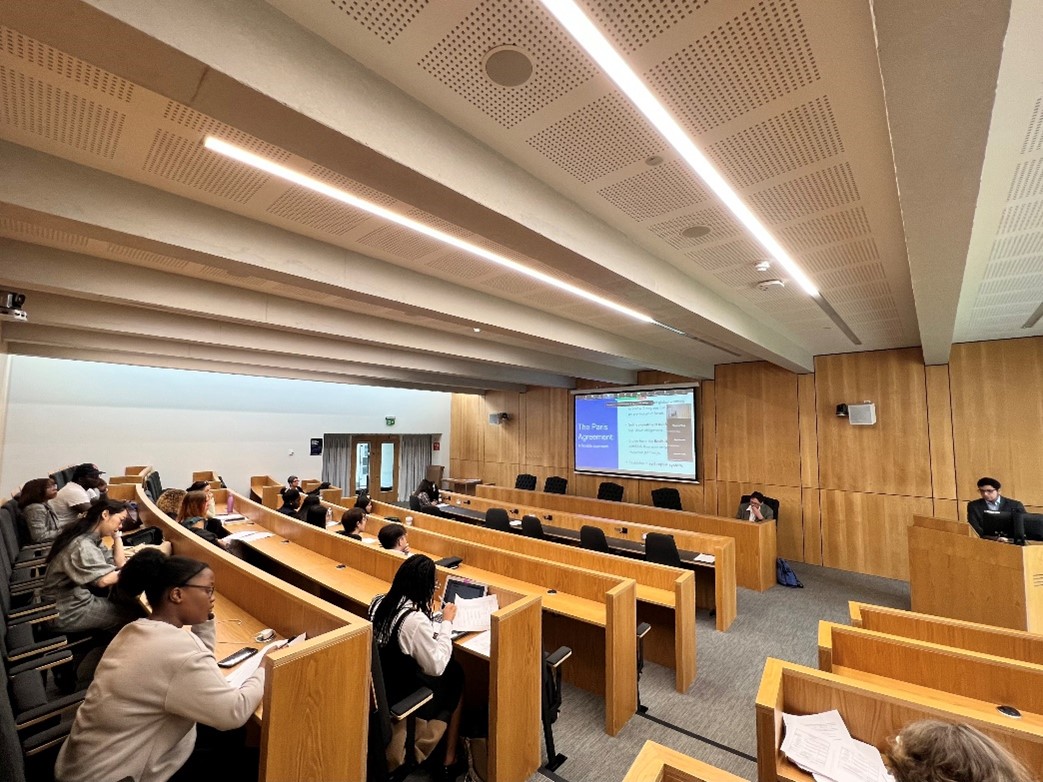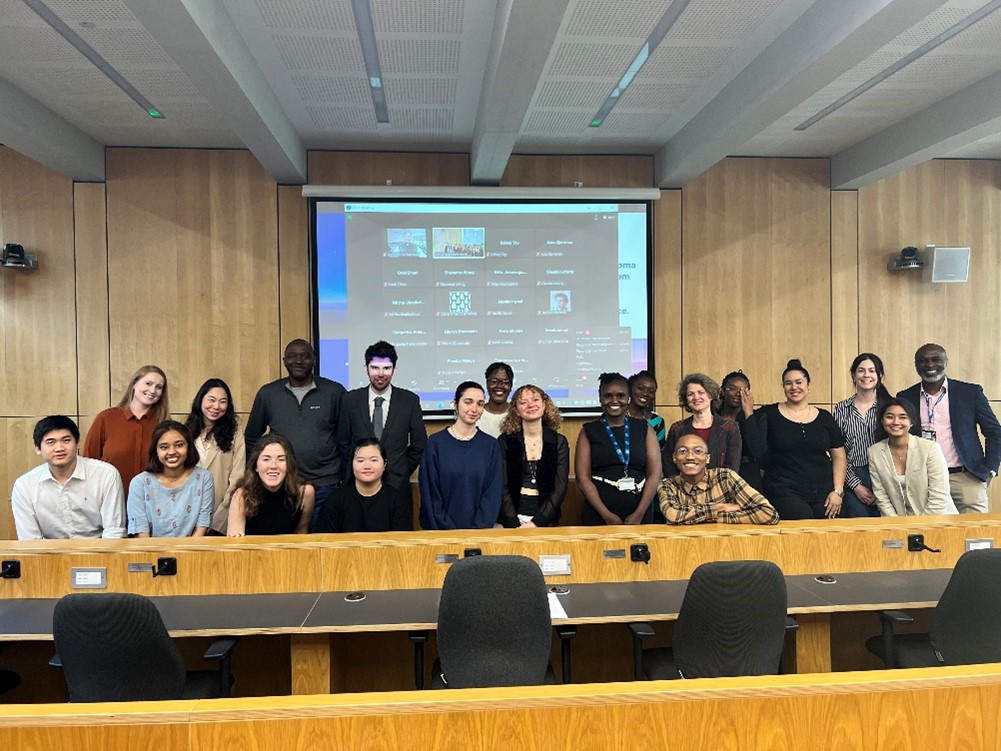The 11th Graduate Law Student Conference was held conjointly with the Kent Critical Law Student Conference 5-6 June 2023 at the University of Kent.
Written by organising students Eunice Njau and Amber Pickering.
The student conference provided a unique opportunity for undergraduate and postgraduate students to develop their leadership and organisational skills by planning the conference, inviting guest lecturers, and selecting student papers. The conference was officially opened by Dr Sophie Vigneron, the Director of Graduate Studies. Dr Sophie provided a historical analysis of the concept of ‘red tape’ and invited the participants to question the rationale of cutting the red tape; in other words, who benefits from deregulation or regulation?
The first day began with a panel on ‘Gender and Regulation’ chaired by Professor Maria Drakopoulou. This panel addressed issues on the regulation of abortion, privacy and menstruation apps and the UN’s Women, Peace, and Security agenda. Maheshini Rathakrishnan began with a paper that critiqued the two-doctor rule that must be adhered to for an abortion to be performed arguing that the current system of regulation of abortion laws does not value bodily autonomy. The second presenter was Niamh Fuller who led participants through an examination of the infringement of privacy rights, over extraction of intimate information and the resale of intimate personal data to third parties for the benefit of the proprietors of menstruation apps. Finally, Miruna Mureseanu spoke about the UN’s Women’s Peace and Security agenda (WPS), critiquing global governance norms that perpetuate colonial relationships.
The first panel was followed by the annual Clive Schmitthoff lecture held this year by Dr Bolanle Adebola, Associate Professor at the University of Reading. Dr Adebola spoke about the impacts of replication of company laws from one country to another alongside states’ desires to boost their World Bank rankings on the Ease of Doing Business Index. Her lecture examined the journey towards reformation of the Nigerian Companies and Allied Markets Act, 2000, which was a culmination of efforts to improve the Nigerian insolvency system that commenced in 1994. Dr Adebola explained how the desire to have better index rankings for the ease of doing business, despite the criteria that established the ranking are clouded in ambiguity, often leads to Global South countries forfeiting their unique law reform process by following the Global North’s legal framework.
After the lunch break, Dr Josipa Šarić chaired the panel on ‘Accountability and Rights’. Lauren Barnard started the session by examining the development of lethal autonomous weapons, arguing for the development of a suitable liability framework.
Building on this, Matthew Pearce provided an assessment of the impact of the increased use of drones on the modern battlefield, highlighting some of the challenges that exist in regulating drones on the battlefield. Sarah Smith presented a paper on cybersecurity in the context of international humanitarian law, followed by Abhijeet Shrivastava from Jindal Global Law School India who joined virtually and spoke about the regulation of cyber election interference. The panel concluded with a paper by Rose Muoma who presented on policy brutality and the right to life. The first day was closed by Dr Ohiocheoya Omiumu who thanked all presenters and the guest lecturer, Dr Adebola.

The second day of the conference started with the panel on ‘Regulation and Global Perspectives’ chaired by Dr Martin Hedemann-Robinson. Juan Zapata spoke about climate litigation as a strategy of improving climate change regulation standards. Shivangi Mayaramka joined virtually and provided interesting insights on modalities of ensuring ethical artificial intelligence in the legal system. This panel was concluded with a paper by Bhaskar Vishwajeet and Diya Rajput on the regulation of legal pedagogy in India. The keynote lecturer, Dr Fernando Barrio of Queen Mary University, was introduced by Shavonne Wong, Chair of the Conference Organizing Committee. In his enthusiastic and engaging lecture, Dr Barrio explored various forms of regulation and the influence of ideology on regulatory systems.
The final panel of the second day was chaired by Professor Donatella Alessandrini. Savita McRae and Maria Da Costa aptly addressed interconnected issues on gaps that exist in the regulation of international labour standards, challenges of upholding corporate accountability in global supply chains and the limitations that face regulatory structures in place. Shivjeet Parthasarathy concluded the panel with a question that reframed the question posed by Dr Vigneron in her opening remarks: from ‘in whose favour do we cut the red tape,’ to ‘must we cut the red tape?’
The final session of the conference was held by Professor Donatella Alessandrini who spoke about what doing a PhD at Kent Law School is like, inspiring students to consider pursuing further research degrees.
The conference ended with the announcement of awards. The Best Paper Award was given to Matthew Pearce and the Best Presentation Award was given to Niamh Fuller. A special mention was awarded to Juan Zapata. Closing remarks were delivered by Dr Josipa Šarić.

